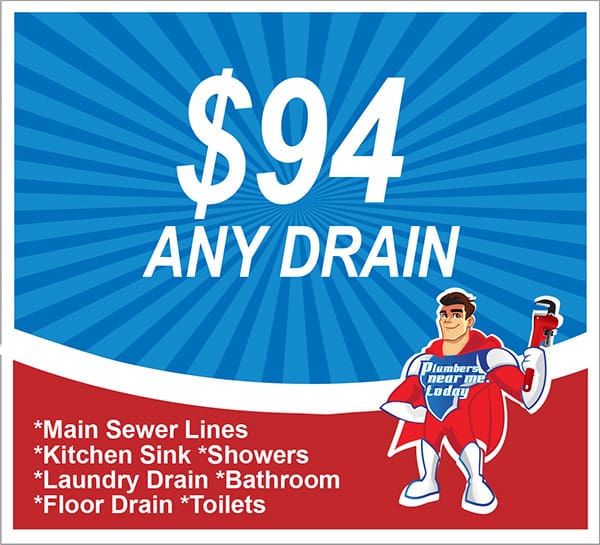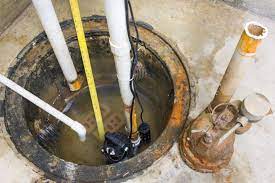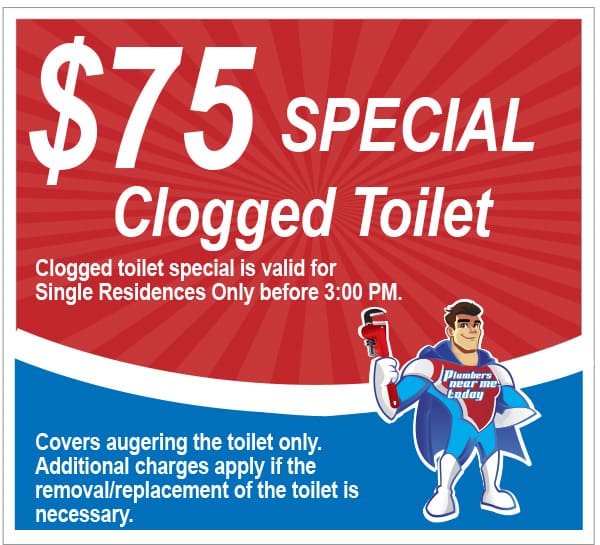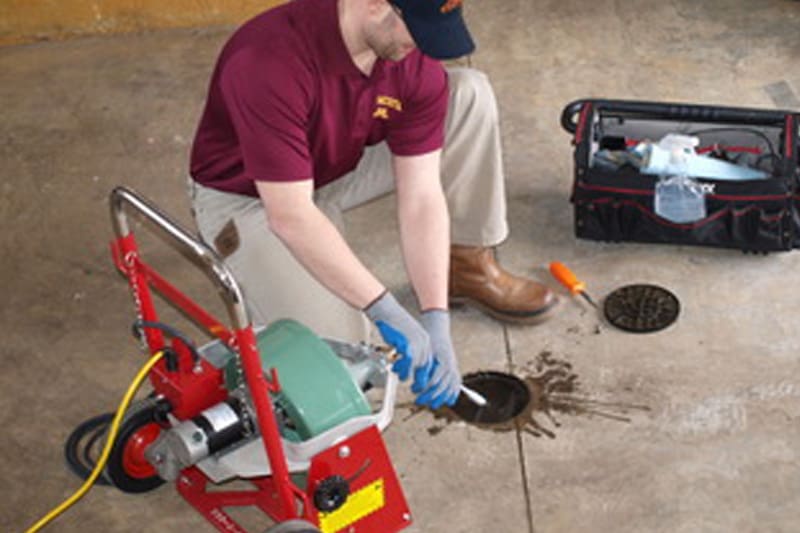Clogged Basement Drain
Basements are a valuable part of any home, providing extra living space and storage. However, basements are also notorious for flooding, mold, and other issues that can arise due to poor drainage. One of the most common problems homeowners face is a clogged basement drain, which can cause water to back up and flood the basement.
In this article, we’ll discuss common basement drain problems, signs of a clogged drain, DIY and professional cleaning options, and preventive measures to avoid future issues.
Common Basement Drain Problems:
a. Clogs: Basement drains can become clogged due to various reasons such as debris, dirt, and hair that accumulate in the pipes over time.
b. Tree Roots: Tree roots can grow into basement drain pipes, causing blockages and damage.
c. Aging Pipes: Older homes may have aging pipes that can become corroded, cracked, or broken, causing leaks or blockages.
Signs of a Clogged Basement Drain:
a. Foul Odors: If you notice a bad smell coming from your basement drain, it’s likely that there is a clog or other issue in the pipes.
b. Slow Draining: Water that drains slowly or doesn’t drain at all is a clear sign of a clogged drain.
c. Gurgling Sounds: Gurgling sounds coming from the basement drain indicate that air is trapped in the pipes, which is a sign of a clog.
DIY Basement Drain Cleaning:
a. Chemical Cleaners: Chemical drain cleaners are readily available at hardware stores and supermarkets. They can be poured down the drain to break up clogs and blockages. However, these cleaners can damage pipes and may not be effective for stubborn clogs.
b. Plunger: A plunger is a simple tool that can be used to remove minor clogs from a basement drain. Use a plunger that is specifically designed for drains and follow the manufacturer’s instructions.
c. Plumbing Snake: A plumbing snake, also known as a drain auger, is a flexible tool that can be used to remove clogs deep in the pipes. It’s important to use the right size and type of snake and to follow safety precautions when using this tool.
Professional Basement Drain Cleaning:
a. Hydro Jetting: Hydro jetting is a powerful cleaning method that uses high-pressure water to blast away debris and blockages in basement drain pipes.
b. Drain Camera Inspection: A drain camera can be used to inspect the inside of basement drain pipes and identify the location and severity of clogs or damage.
c. Drain Repair or Replacement: In some cases, basement drain pipes may need to be repaired or replaced to prevent further issues.
Preventive Measures:
To prevent future basement drain issues, it’s important to take preventive measures such as:
a. Regular Cleaning: Regularly cleaning the basement drain can help prevent clogs and other issues.
b. Avoid Pouring Grease and Oil: Pouring grease, oil, and other substances down the drain can cause clogs and damage to the pipes.
c. Proper Landscaping: Planting trees and shrubs away from the foundation of the house can prevent tree roots from growing into the basement drain pipes.
d. Install Backflow Prevention: Installing a backflow prevention device can prevent water from flowing back into the basement drain in case of a sewage backup.
e. Regular Plumbing Maintenance: Regular plumbing maintenance, including pipe inspections and repairs, can prevent basement drain issues from developing.
Conclusion:
Basement drain cleaning is an essential task for homeowners to prevent flooding, mold, and other issues caused by poor drainage. DIY methods such as chemical cleaners, plungers, and plumbing snakes can be effective for minor clogs, while professional methods such as hydro jetting and drain camera inspection can tackle more severe blockages and damage.
Regular cleaning, proper landscaping, and backflow prevention can also help prevent future basement drain issues. By taking preventive measures and addressing any problems promptly, homeowners can keep their basements dry and functional.
FAQs:
Q1. How often should I clean my basement drain?
A1. It’s recommended to clean your basement drain at least once a year, or more often if you notice any signs of clogs or slow draining.
Q2. Can I use baking soda and vinegar to clean my basement drain?
A2. Baking soda and vinegar can be used as a DIY cleaner for minor clogs, but they may not be effective for severe blockages.
Q3. How do I know if I need professional basement drain cleaning?
A3. If you have tried DIY methods and still have persistent clogs, foul odors, or slow draining, it may be time to call a professional plumber for help.
Q4. How can I prevent tree roots from growing into my basement drain pipes?
A4. Plant trees and shrubs away from the foundation of the house, and consider installing a root barrier to prevent roots from growing into the pipes.
Q5. Can a clogged basement drain cause health problems?
A5. Yes, a clogged basement drain can cause mold growth, foul odors, and bacteria buildup, which can lead to health problems for residents of the home.
CONTACT US TO SCHEDULE YOUR SERVICE TODAY
WE’RE READY TO HELP YOU!
WHY YOUR NEIGHBORS CHOOSE US AND OUR PLUMBING SERVICES
- 24-HOUR SERVICE NO EXTRA OR WEEKEND FEES
- LARGE FLEET OF TRUCKS
- TOP-NOTCH TECHNICIANS
- LICENSED & PROFESSINAL PLUMBERS
- STATE OF THE ART EQUIPMENT
- 5 STAR CUSTOMER SERVICE
- RELIABLE & ON-TIME
- SERVING 65 SURROUNDING METRO AREAS
- "PLUMBERS NEAR ME" SERVICES
- FREE ESTIMATES





